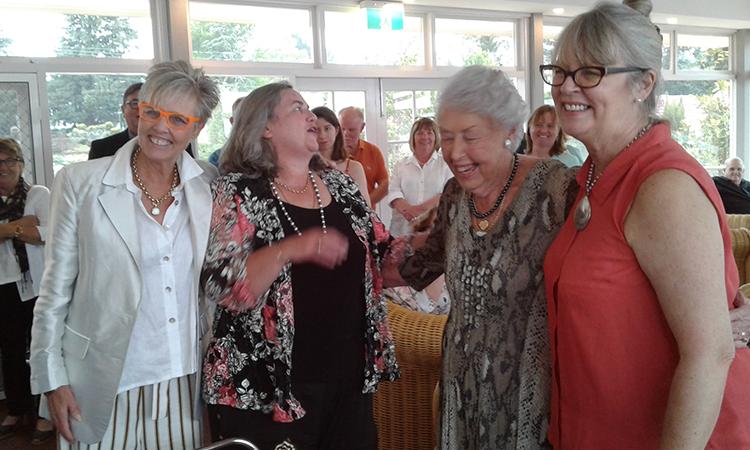National Advance Care Planning Week, March 18-24, is an opportune time to start a conversation and share what matters most for your future health care.

Kath Matthews (pictured second left) with her sisters and mother, Mary (pictured second right)
Mary was nearly 94 when she fell in a nursing home late last year. Despite her age, her family never imagined that using her Advance Care Directive would be something they’d need straight away.
“It was an easier journey, knowing that I had the Advance Care Directive and that it would get upheld,” says Kath Matthews, Mary’s daughter.
“She had been in the nursing home for four days and tripped on her walker and fell, breaking her hip.”
After breaking her hip, surgery was recommended, however after the operation Mary’s condition deteriorated.
“Following surgery her blood pressure couldn’t be stabilised. She was in and out of delirium and was in a lot of pain. She was no longer able to get out of bed at all. She asked for us to use her Advance Care Directive she had prepared,” says Kath.
“I had always carried it with me when she was hospitalised in case there was an issue. Mum was very clear around what she wanted and didn’t want. It was very detailed.”
“Mum had always said that if there was something that could be done to restore her quality of life that she would agree to that, but that wasn’t the case here,” says Kath.
After stopping life prolonging treatment and returning to the nursing home, Mary sadly passed away a few days later, surrounded by her family. Kath and the family took great comfort in having fulfilled their mum’s health care wishes.
Nepean Blue Mountains Local Health District Advance Care Planning Coordinator, Maree White, wants everyone to consider: if you were seriously unwell and could not speak for yourself, who would speak for you and would they know what to say?
“Think about if you can’t communicate your health wishes. Have you identified someone who can speak on your behalf?” says Maree.
“The benefits of having advance care planning documents in place means that the person has a say in their treatment, and your family has comfort in knowing their wishes are being fulfilled.”
For health professionals, advance care planning documents mean better outcomes for patients.
“It’s not about limiting treatment options. It’s about the person identifying their healthcare values, stating the outcomes or treatments they would or would not want. This informs the conversation about the situation at hand, and helps to set the goals for patient care,” says Maree.
“Advance care planning can help reduce the stress of serious illness and give families a sense of peace in bereavement.”
Use Advance Care Planning Week to start a conversation and plan for your future health care.
Maree believes everyone should consider advance care planning, regardless of their age or health.
“You do not need a solicitor to do advance care planning, it can be done by the person themselves and is best done with your doctor,” explains Maree.
Visit one of the Information Stalls being held at our hospitals across Advance Care Planning Week to learn more about advance care planning:
Blue Mountains Hospital – Thursday 21 March 10am and 2pm
Springwood Hospital – Friday 22 March 10am and 2pm
More information including templates and conversation starters can be found at: www.advancecareplanning.org.au.








